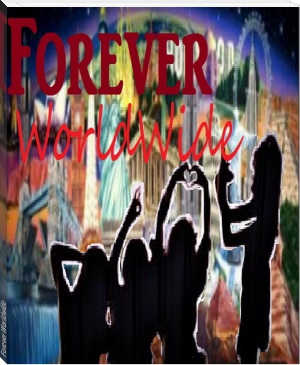Moonbeams from the Larger Lunacy by Stephen Leacock (best feel good books .TXT) 📕

Read free book «Moonbeams from the Larger Lunacy by Stephen Leacock (best feel good books .TXT) 📕» - read online or download for free at americanlibrarybooks.com
- Author: Stephen Leacock
Read book online «Moonbeams from the Larger Lunacy by Stephen Leacock (best feel good books .TXT) 📕». Author - Stephen Leacock
I let him muse. In fact I determined to let him muse till he burst before I would ask him what he had been through. I knew it, anyway.
Presently he decided to go on talking.
“We were at Izzl,” he said, “in the Carpathians, Loo Jones and I. We’d just made a walking tour from Izzl to Fryzzl and back again.”
“Why did you come back?” I asked.
“Back where?”
“Back to Izzl,” I explained, “after you’d once got to Fryzzl. It seems unnecessary, but, never mind, go on.”
“That was in July,” he continued. “There wasn’t a sign of war, not a sign. We heard that Russia was beginning to mobilize,” (at this word be blew a puff from his cigarette and then repeated “beginning to mobilize”) “but we thought nothing of it.”
“Of course not,” I said.
“Then we heard that Hungary was calling out the Honveds, but we still thought nothing of it.”
“Certainly not,” I said.
“And then we heard—”
“Yes, I know,” I said, “you heard that Italy was calling out the Trombonari, and that Germany was calling in all the Landesgeschutzshaft.”
He looked at me.
“How did you know that?” he said.
“We heard it over here,” I answered.
“Well,” he went on, “next thing we knew we heard that the Russians were at Fryzzl.”
“Great Heavens!” I exclaimed.
“Yes, at Fryzzl, not a hundred miles away. The very place we’d been at only two weeks before.”
“Think of it!” I said. “If you’d been where you were two weeks after you were there, or if the Russians had been a hundred miles away from where they were, or even if Fryzzl had been a hundred miles nearer to Izzl—”
We both shuddered.
“It was a close call,” said Parkins. “However, I said to Loo Jones, ‘Loo, it’s time to clear out.’ And then, I tell you, our trouble began. First of all we couldn’t get any money. We went to the bank at Izzl and tried to get them to give us American dollars for Hungarian paper money; we had nothing else.”
“And wouldn’t they?”
“Absolutely refused. They said they hadn’t any.”
“By George,” I exclaimed. “Isn’t war dreadful? What on earth did you do?”
“Took a chance,” said Parkins. “Went across to the railway station to buy our tickets with the Hungarian money.”
“Did you get them?” I said.
“Yes,” assented Parkins. “They said they’d sell us tickets. But they questioned us mighty closely; asked where we wanted to go to, what class we meant to travel by, how much luggage we had to register and so on. I tell you the fellow looked at us mighty closely.”
“Were you in those clothes?” I asked.
“Yes,” said Parkins, “but I guess he suspected we weren’t Hungarians. You see, we couldn’t either of us speak Hungarian. In fact we spoke nothing but English.”
“That would give him a clue,” I said.
“However,” he went on, “he was civil enough in a way. We asked when was the next train to the sea coast, and he said there wasn’t any.”
“No trains?” I repeated.
“Not to the coast. The man said the reason was because there wasn’t any railway to the coast. But he offered to sell us tickets to Vienna. We asked when the train would go and he said there wouldn’t be one for two hours. So there we were waiting on that wretched little platform,—no place to sit down, no shade, unless one went into the waiting room itself,—for two mortal hours. And even then the train was an hour and a half late!”
“An hour and a half late!” I repeated.
“Yep!” said Parkins, “that’s what things were like over there. So when we got on board the train we asked a man when it was due to get to Vienna, and he said he hadn’t the faintest idea!”
“Good heavens!”
“Not the faintest idea. He told us to ask the conductor or one of the porters. No, sir, I’ll never forget that journey through to Vienna,—nine mortal hours! Nothing to eat, not a bite, except just in the middle of the day when they managed to hitch on a dining-car for a while. And they warned everybody that the dining-car was only on for an hour and a half. Commandeered, I guess after that,” added Parkins, puffing his cigarette.
“Well,” he continued, “we got to Vienna at last. I’ll never forget the scene there, station full of people, trains coming and going, men, even women, buying tickets, big piles of luggage being shoved on trucks. It gave one a great idea of the reality of things.”
“It must have,” I said.
“Poor old Loo Jones was getting pretty well used up with it all. However, we determined to see it through somehow.”
“What did you do next?”
“Tried again to get money: couldn’t—they changed our Hungarian paper into Italian gold, but they refused to give us American money.”
“Hoarding it?” I hinted.
“Exactly,” said Parkins, “hoarding it all for the war. Well anyhow we got on a train for Italy and there our troubles began all over again:—train stopped at the frontier,—officials (fellows in Italian uniforms) went all through it, opening hand baggage—”
“Not hand baggage!” I gasped.
“Yes, sir, even the hand baggage. Opened it all, or a lot of it anyway, and scribbled chalk marks over it. Yes, and worse than that,—I saw them take two fellows and sling them clear off the train,—they slung them right out on to the platform.”
“What for?” I asked.
“Heaven knows,” said Parkins,—“they said they had no tickets. In war time you know, when they’re mobilizing, they won’t let a soul ride on a train without a ticket.”
“Infernal tyranny,” I murmured.
“Isn’t it? However, we got to Genoa at last, only to find that not a single one of our trunks had come with us!”
“Confiscated?” I asked.
“I don’t know,” said Parkins, “the head baggage man (he wears a uniform, you know, in Italy just like a soldier) said





Comments (0)